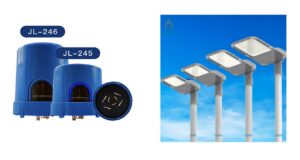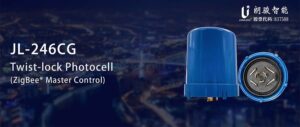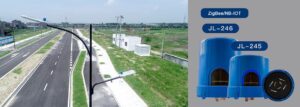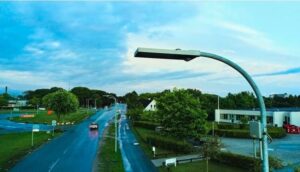How Long-Join’s JL-250P Power Tap Solves the Biggest Problem in Smart Street Lighting — Safe Power Access Without Rewiring
Introduce
Smart street lighting is transforming cities into intelligent networks, but beneath the innovation lies a surprisingly practical challenge — safe and easy access to power. From environmental sensors to security cameras and Wi-Fi modules, today’s smart poles demand continuous, reliable energy. Yet, many installers still face rewiring issues, safety concerns, and inconsistent standards.
That’s where Long-Join’s JL-250P Power Tap comes in. This compact, plug-and-play unit lets engineers, OEMs, and city contractors tap safe auxiliary power from existing NEMA sockets. It does so without changing any wiring at all or disrupting the photocell control system.
Let’s see how this small but strong connector works. It bridges the gap between old lighting and the smart cities ahead.

What Is the Hidden Power Challenge in Smart Lighting Projects?
Most people hear “smart street lighting” and think only hardware. They picture photocell sensors, IoT controllers, and cloud software. Many skip one key thing. It is how to safely get power for extra devices on the pole.
Streetlights once had one job. They powered lamps. Now, they must support more devices. These include cameras, air-quality sensors, and 4G routers today. The problem is that these poles rarely have a dedicated power output, forcing installers to improvise.
Unplanned wiring creates risks — electric shock, water leakage, and even system interference with the photocontrol. Many city projects end up delayed because inspectors fail unsafe or non-standard power setups.
The JL-250P Power Tap solves this. It provides a standardized, waterproof way to extract auxiliary power through the NEMA socket — ensuring compliance with ANSI C136.10, C136.41, and UL773 standards.
How Does the JL-250P Work Without Rewiring?
The JL-250P acts as a bridge between the streetlight and its photocell. It’s inserted between the two using a twist-lock NEMA plug, instantly creating a secondary output for accessories.
Unlike makeshift connectors, it doesn’t disrupt the main power flow or lighting control. The photocell continues to function normally, while the power tap provides an additional, safe line for smart devices.
Table 1: How the JL-250P Integrates Into Existing Systems
Component | Function | Benefit |
NEMA Socket | Standard 3-, 5-, or 7-pin receptacle | Universal compatibility |
JL-250P Power Tap | Inserted between the photocell and the socket | Provides auxiliary output |
Photocell | Controls streetlight operation | Works unaffected |
Smart Device | Sensor/camera / Wi-Fi router | Receives stable power feed |
This design means you don’t cut or expose wires. It suits retrofit work and brand-new installs of any size.
You can explore more on Long-Join’s product compatibility here.
What Power Modes Does the JL-250P Offer?
Flexibility defines modern smart lighting. Long-Join engineered multiple versions of the JL-250P to match different project needs.
P2 and P4 deliver continuous power in always-on mode. They both suit cameras and communication modules that need to stay active 24/7.
P3 and P5 models supply power only when the light is on. This saves energy for devices that aren’t critical.
Some models include a signal interface. It supports 0–30 VDC, 250 mA max, for IoT, remote dimming, and feedback to street light controllers.
Table 2: JL-250P Model Options
Model | Output Mode | Signal Interface | Typical Application |
JL-250P2 | Continuous | No | 24-hour security cameras |
JL-250P3 | Light-on only | No | Light-controlled displays |
JL-250P4 | Continuous | Yes | Wireless gateways / IoT nodes |
JL-250P5 | Light-on only | Yes | Smart environmental sensors |
This modularity means cities can customize their smart poles easily — choosing continuous or switched power without redesigning their network.
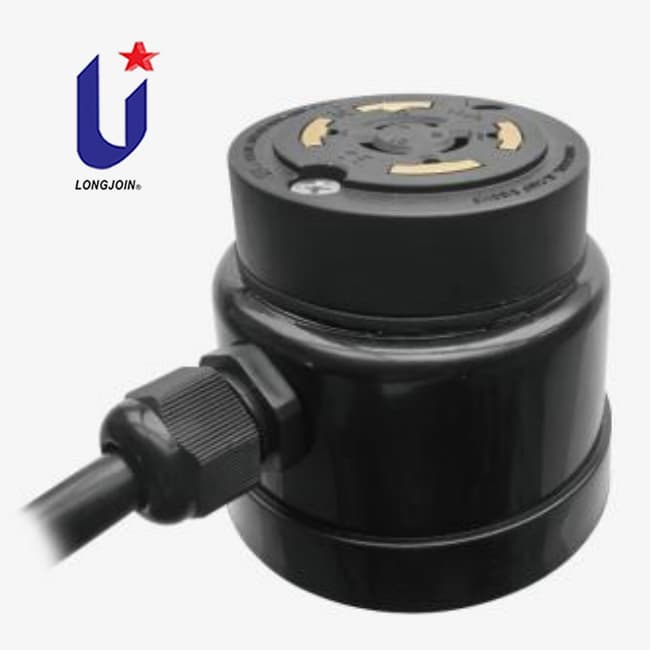
Why Is the JL-250P Safer Than Conventional Power Taps?
Outdoor lighting environments are harsh. Rain, dust, and heat strain connectors. Constant exposure pushes them to the limit.
JL-250P has an IP65 waterproof rating. No moisture gets into its internal contacts. It has gold-plated phosphor bronze terminals. The coating, 0.7 µm or more, gives corrosion resistance, long-term stability.
It has tinned copper wires in 16 AWG or 18 AWG. They handle up to 15 A and 480 VAC, so it works across global voltages.
The plug-and-play twist-lock mechanism further enhances safety — even non-specialist technicians can install it without exposing live wires.
In short, it’s not just a connector; it’s a certified protection layer designed for long-term performance in smart city environments.
How Does It Support the Photocell and Lighting Control System?
Every photocell lighting sensor operates by detecting ambient light and signaling the lamp to switch on or off. Adding new devices to the same circuit can easily disturb this process if not done carefully.
The JL-250P Power Tap preserves this balance. Its internal wiring ensures the photocell’s sensor and control signals remain isolated from the auxiliary circuit. That means the light’s dusk-to-dawn photocell function stays accurate while extra devices operate independently.
Long-Join’s engineers tested this design extensively under UL773 standards, confirming that voltage drops and cross-interference remain within safe margins. The result is stable performance for both the photocell switch and any connected accessory.
You can learn more about photocell control technologies on Long-Join’s Photocontrol Receptacle Page.
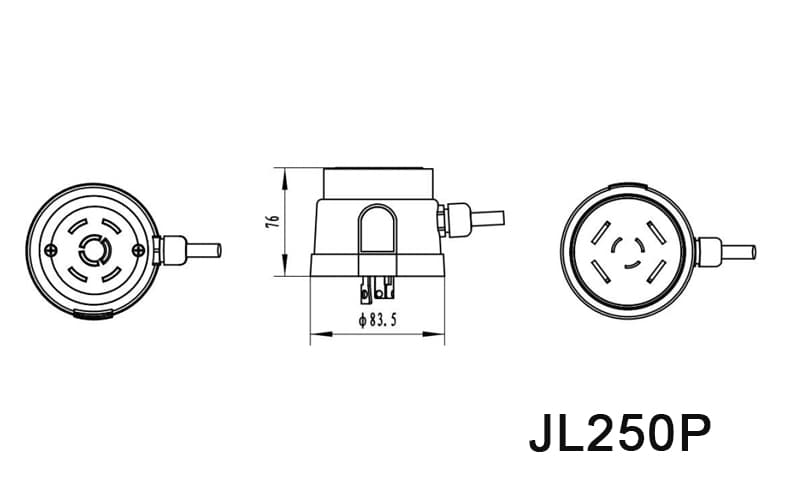
What Real Problems Does It Solve for Customers?
Different players in the smart lighting ecosystem face unique pain points. EPC contractors, lighting OEMs, and system integrators all benefit from JL-250P’s design in specific ways.
Customer Type | Common Problem | JL-250P Solution |
EPC Contractor | No safe way to power sensors/cameras | Provides NEMA-based auxiliary output |
Luminaire OEM | Difficulty offering smart-upgrade options | Adds built-in modular power interface |
Smart Lighting Integrator | Complicated wiring / system mismatch | Unifies power + signal interface |
City Project Owner | High retrofitting cost | Enables smart upgrades without new wiring |
By simplifying installation, it reduces project downtime and prevents re-inspection delays — a major concern in municipal projects.
How Does It Help Manufacturers Compete in a Smart Market?
For manufacturers photocell and luminaire OEMs, adaptability is everything. The JL-250P helps them turn standard fixtures into smart-ready platforms without redesigning circuit boards or violating certifications.
Integrating this small connector means their products immediately support future-proof smart upgrades — power ports for data nodes, wireless units, or photoelectric sensors.
This not only enhances functionality but also preserves UL/CE compliance and shortens the development cycle for new models.
OEMs can market their luminaires as ready for IoT expansion, improving value propositions for tenders and city bids.
Why Choose Long-Join?
Shanghai Long-Join Electronics has over 20 years in photocell and lighting control technology. It ranks among the world’s leaders in outdoor lighting connectivity globally.
The company’s manufacturing base covers 15,300 m², certified under UL, CE, and ISO standards. It holds 30+ invention and utility patents, and partners with top brands like Philips, Cree, and Tork.
Long-Join supplies more than 50% of photocontrol receptacles used in the U.S. market — a testament to consistent quality and trust.
Its commitment to research, safety, and innovation ensures that every product — including the JL-250P — performs reliably in the most demanding smart city applications.
To explore Long-Join’s full product catalog, visit www.long-join.
How Does the JL-250P Prepare Cities for the Future?
The modern streetlight is no longer just a light source; it’s an intelligent hub for data and connectivity.
With solutions like the JL-250P Power Tap, each pole becomes a power distribution node, ready to host evolving smart technologies — from remote control lights to traffic sensors and 5G micro-cells.
By using standardized interfaces like the NEMA socket, cities can integrate new modules over time without disrupting their infrastructure. It’s a simple, scalable approach that supports the global shift toward intelligent lighting and sustainable energy management.
According to a SmartCitiesWorld report, cities adopting modular smart poles can reduce installation costs by up to 40%, largely due to reusable components like NEMA-based connectors.
That’s precisely the kind of efficiency Long-Join’s technology delivers.
Conclusion
The JL-250P Power Tap proves that innovation doesn’t always have to be complex. With one twist, it transforms a regular lamp into a smart-ready system — safely, efficiently, and globally compliant.
For engineers, it saves time. For city planners, it reduces costs. For OEMs, it drives competitiveness. And for smart citizens, it powers a future that shines brighter and works smarter.
External Links:
●https://webstore.ansi.org/standards/nema/ansic136102023?srsltid=AfmBOoqi4E0I6dlUNf177fY2OTtng4Z57ogqZuvIFSf_nzb0tNpwy8I0
●https://www.nema.org/standards/technical/ansi-c136-series-standards-for-roadway-and-area-lighting-equipment
●https://www.shopulstandards.com/ProductDetail.aspx?UniqueKey=30842
●https://www.ul.com/solutions
●https://europa.eu/youreurope/business/product-requirements/labels-markings/ce-marking/index_en.htm
●https://www.iso.org/home.html
●https://www.philips.com/global
●https://www.cree-led.com/
●https://www.torkglobal.com/us/en
●https://www.smartcitiesworld.net

